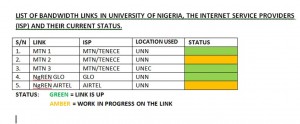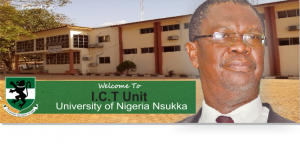OVERVIEW OF ITU
ITU is the United Nations specialized agency for information and communication technologies – ICTs.
ITU is the United Nations specialized agency for information and communication technologies – ICTs.
ITU allocate global radio spectrum and satellite orbits, develop the technical standards that ensure networks and technologies seamlessly interconnect, and strive to improve access to ICTs to underserved communities worldwide.
ITU is committed to connecting the entire world’s people – wherever they live and whatever their means and to protect and support everyone’s fundamental right to communicate.
As ICTs underpin everything we do today, ITU help to manage and control emergency services, water supplies, power networks and food distribution chains, support health care, education, government services, financial markets, transportation systems and environmental management and allow people to communicate with colleagues, friends and family anytime,
and almost anywhere.
and almost anywhere.
ITU was founded in Paris in 1865 as the International Telegraph Union.
It took its present name in 1934, and in 1947 became a specialized agency of the United Nations.
Although its first area of expertise was the telegraph, the work of ITU now covers the whole ICT sector, from digital broadcasting to the Internet, and from mobile technologies to 3D TV.
It is an organization of public-private partnership since its inception. Currently, it has a membership of about 192 countries and some 700 private-sector entities.
ITU is headquartered in Geneva, Switzerland, and has twelve regional and area offices around the world.
ITU is the oldest UN Agency and celebrated its 150th anniversary in 2015
ROLE OF TIES IN ITU ACTIVITIES:
TIES (Telecommunication Information Exchange Service) is a set of networked information resources and services offered by ITU without any charge to ITU Members (Member States, Sector Members, Associates, and Academia) to support their participation in the activities of the Union.
TIES accounts are provided, on demand, to staff from ITU Members (Member States, Sector Members, Associates, and Academia).
A TIES account provides personalized access (through a username and a password) to a number of services. TIES services are provided to support the participation of Members in the activities of the Union and include email, online collaboration tools, access to ITU meeting documents, automatic email notifications, etc
Some common terms in the operation of ITU:
1. STUDY GROUP: are were Standardization work is carried out in which representatives of the ITU-T membership develop Recommendations (standards) for the various fields of international telecommunications.
1. STUDY GROUP: are were Standardization work is carried out in which representatives of the ITU-T membership develop Recommendations (standards) for the various fields of international telecommunications.
2. QUESTION: description of an area of work to be studied, normally leading to the production of one or more new or revised Recommendation
3. WORK ITEM – an assigned piece of work which is identifiable with a question and which has specific or general objectives, which will result in a product, usually a Recommendation for publicity by ITU.
4. WORK PROGRAMME: A list of work items that are owned by a study group.
5. RECOMMENDATION: standards defining how telecommunication networks operate and interwork. ITU-T Recs have non-mandatory status until they are adopted in national laws
Contributions to ITU work can be in the form of – Amendments, annex, appendix, clause, corrigendum, implementation guide, supplement, text etc.
Key conferences of ITU are:
World Conference on International Telecommunications (WCIT)
World Telecommunication Policy Forum (WTPF)
World Telecommunication Standardization Assembly (WTSA)
World Radiocommunication Conference (WRC)
World Telecommunication Development Conference (WTDC)
World Summit on the Information Society (WSIS)
World Conference on International Telecommunications (WCIT)
World Telecommunication Policy Forum (WTPF)
World Telecommunication Standardization Assembly (WTSA)
World Radiocommunication Conference (WRC)
World Telecommunication Development Conference (WTDC)
World Summit on the Information Society (WSIS)
Read More … Download for more Information
Dr Agozie Eneh
Computer Science Department, UNN
+234 7039258669
agozieene@yahoo.com





